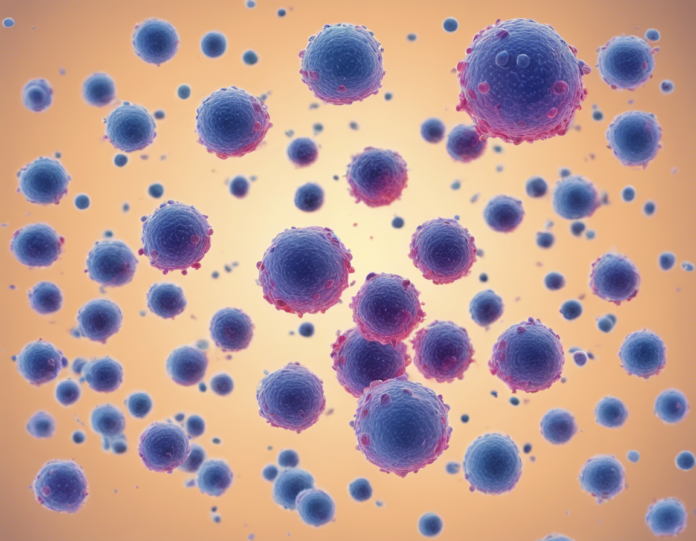Hindi Name and Role of Lymphocytes in the Human Body
Lymphocytes are a crucial component of the body’s immune system, playing a vital role in defending against infections and diseases. In Hindi, lymphocytes are commonly referred to as “लसीका कोशिकाएँ” (Laseeka Koshikaen). These specialized white blood cells are produced in the bone marrow and play a key role in the adaptive immune response.
What Are Lymphocytes?
Lymphocytes are a type of white blood cell that plays a critical role in the immune system. There are three main types of lymphocytes: T cells, B cells, and natural killer (NK) cells. Each type of lymphocyte has a specific function in the immune response.
Types of Lymphocytes:
-
T Cells: T cells are responsible for recognizing and destroying infected cells in the body. They play a crucial role in cell-mediated immunity and help regulate the immune response.
-
B Cells: B cells produce antibodies that can bind to foreign substances, such as bacteria and viruses, marking them for destruction by other immune cells. They are essential for the production of antibodies in the humoral immune response.
-
Natural Killer (NK) Cells: NK cells are cytotoxic cells that can directly kill virus-infected cells and tumor cells. They provide rapid responses to virally infected cells and help in the control of tumor growth.
Role of Lymphocytes in the Immune System
Lymphocytes play a crucial role in the body’s defense mechanism, providing protection against infections and diseases. They work together to identify and neutralize harmful invaders, such as bacteria, viruses, and cancer cells. Here are some key roles of lymphocytes in the immune system:
Key Roles of Lymphocytes:
-
Antigen Recognition: Lymphocytes can recognize specific antigens, which are molecules present on the surface of pathogens. This recognition triggers an immune response to destroy the invading pathogens.
-
Antibody Production: B cells produce antibodies that bind to antigens, neutralizing them and marking them for destruction by other immune cells.
-
Cell-Mediated Immunity: T cells play a crucial role in cell-mediated immunity, where they directly destroy infected cells or coordinate immune responses by releasing signaling molecules.
-
Memory Response: Lymphocytes can develop memory cells that “remember” specific pathogens. This memory allows for a faster and more effective response upon subsequent exposure to the same pathogen.
-
Immune Regulation: Lymphocytes help regulate the immune response to prevent overactivity or autoimmunity. They ensure a balanced immune reaction to different stimuli.
Importance of Lymphocytes in Health and Disease
Lymphocytes are essential for maintaining a healthy immune system and protecting the body against infections. Problems with lymphocyte function or levels can lead to immune deficiencies, autoimmune disorders, and increased susceptibility to infections. Understanding the role of lymphocytes is crucial for diagnosing and treating various immune-related conditions.
Importance of Lymphocytes:
-
Immune Defense: Lymphocytes are the primary cells responsible for recognizing and eliminating pathogens, helping the body fend off infections.
-
Autoimmune Diseases: Dysregulation of lymphocyte function can lead to autoimmune diseases, where the immune system attacks healthy cells and tissues.
-
Cancer Surveillance: Lymphocytes, especially NK cells, play a role in detecting and destroying cancer cells, contributing to cancer immune surveillance.
-
Vaccine Response: Lymphocytes are involved in the body’s response to vaccines, generating an immune memory that provides protection against future infections.
-
Immunodeficiency: Deficiencies in lymphocyte numbers or function can result in immunodeficiency disorders, making individuals more susceptible to infections.
Frequently Asked Questions (FAQs) About Lymphocytes
1. What are the normal levels of lymphocytes in the blood?
In adults, the normal range of lymphocytes in the blood is usually between 1,000 and 4,800 lymphocytes per microliter of blood.
2. How are lymphocyte levels affected by infections?
During an infection, the body’s lymphocyte levels may increase in response to the invading pathogen. This is known as lymphocytosis.
3. Can stress affect lymphocyte function?
Chronic stress can have a negative impact on the immune system, including lymphocyte function. Stress hormones can suppress immune responses and affect lymphocyte activity.
4. What role do lymphocytes play in organ transplantation?
Lymphocytes are involved in the rejection of transplanted organs. The body’s immune system, including lymphocytes, may recognize the transplanted organ as foreign and mount an immune response to reject it.
5. How can I support lymphocyte function?
Maintaining a healthy lifestyle with a balanced diet, regular exercise, adequate sleep, and stress management can support optimal lymphocyte function and overall immune health.
In conclusion, लसीका कोशिकाएँ (Lymphocytes) are key players in the body’s immune defense, with distinct roles in combating infections, producing antibodies, and regulating immune responses. Understanding the importance of lymphocytes in health and disease is essential for promoting overall well-being and immune function.









